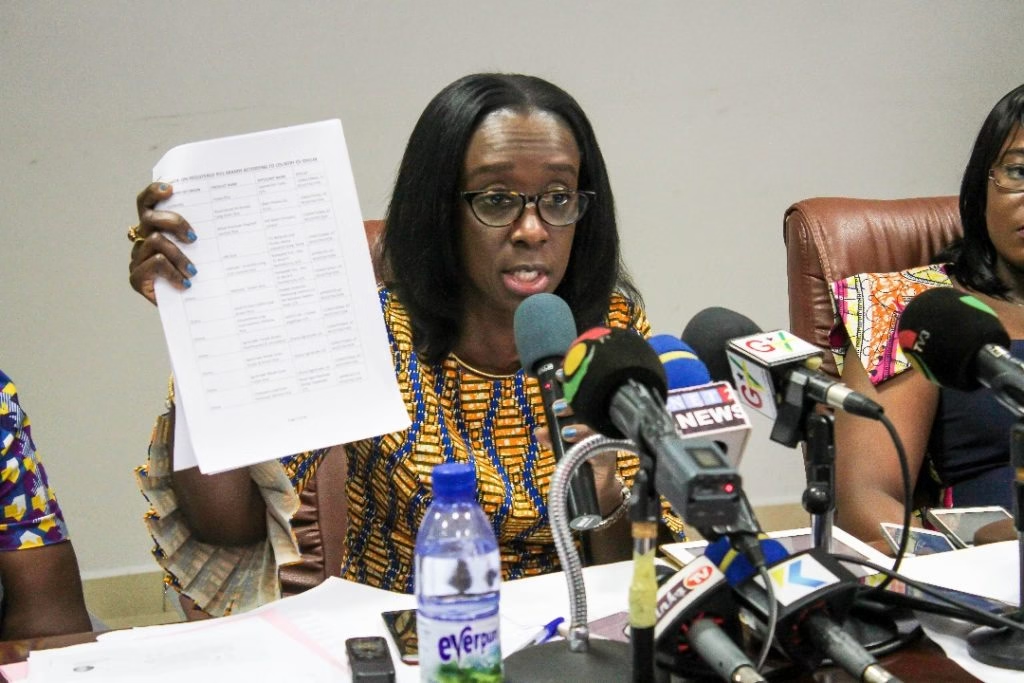In a significant move to safeguard public health, the Food and Drugs Authority (FDA) of Ghana has revoked the Good Manufacturing Practices (GMP) certification of Aveo Pharmaceuticals. This decision follows a damning BBC Africa Eye investigation that exposed the company’s alleged involvement in the illegal distribution of opioid-based medications across West Africa.
What Did the Investigation Reveal?
The BBC Africa Eye investigation uncovered that Aveo Pharmaceuticals, through its partner Westfin International, exported unapproved drugs containing tapentadol and carisoprodol—highly addictive opioids—to Ghana, Nigeria, and Côte d’Ivoire. These substances, when abused, can lead to severe health risks, including respiratory collapse and even death.
The FDA’s swift response highlights its commitment to protecting public health and ensuring the safety of pharmaceuticals in Ghana.
FDA’s Immediate Actions
In response to the investigation, the FDA has taken several decisive steps:
1. Revocation of GMP Certification
The FDA revoked Aveo Pharmaceuticals’ GMP certification, effectively barring the company from manufacturing or distributing pharmaceutical products in Ghana.
2. Termination of Transactions
The FDA directed Samos Pharma, a Ghanaian importer, to terminate all transactions with Aveo Pharmaceuticals and Westfin International.
3. Suspension of Product Registrations
The registration process for six products from Masters Pharmaceutical Limited, which planned to use Aveo Pharmaceuticals as a contract manufacturer, has been suspended.
Government’s Commitment to Combating Opioid Abuse
The Minister of Health, Kwabena Mintah Akandoh, addressed Parliament on February 25, 2025, expressing grave concerns over the increasing infiltration of unregistered drugs into Ghana’s pharmaceutical market. He highlighted the dangers of unapproved drugs, including tramadol and tapentadol, which have led to widespread abuse, severe health complications, and fatalities.
Government Measures to Curb the Crisis
- Joint Task Force: The FDA, Narcotics Control Commission, Customs, and Ghana Revenue Authority have intensified checks at major entry points.
- Destruction of Illicit Drugs: A large consignment of Toradol and similar drugs has been destroyed.
- Legal Action: Offenders are being prosecuted to deter future violations.
- Public Education Campaign: A national campaign has been launched to warn the public about the dangers of illicit opioid use and promote responsible medication practices.
The Broader Impact of Illegal Opioid Distribution
The illegal distribution of opioids poses significant risks to public health:
- Health Risks: Abuse of opioids like tapentadol and carisoprodol can lead to addiction, respiratory failure, and death.
- Economic Burden: The healthcare system bears the cost of treating opioid-related complications.
- Social Consequences: Families and communities are devastated by the loss of loved ones to opioid abuse.
What’s Next?
The FDA has vowed to intensify enforcement actions, including seizures, fines, and prosecutions of illegal drug distributors. The agency is also collaborating with law enforcement to prevent the infiltration of dangerous pharmaceuticals into Ghana.
For more information on the FDA’s efforts to combat illegal drug distribution, visit the FDA Ghana website.
Key Takeaways
- The FDA revoked Aveo Pharmaceuticals’ GMP certification following a BBC investigation.
- Aveo Pharmaceuticals allegedly distributed unapproved opioids across West Africa.
- The Ghanaian government is taking stringent measures to combat illegal drug distribution.
- Public education campaigns aim to raise awareness about the dangers of opioid abuse.
Stay informed and protect your health by avoiding unapproved medications. Report suspicious pharmaceutical activities to the FDA or local authorities. For more resources on public health and safety, visit HumicChina.com.



